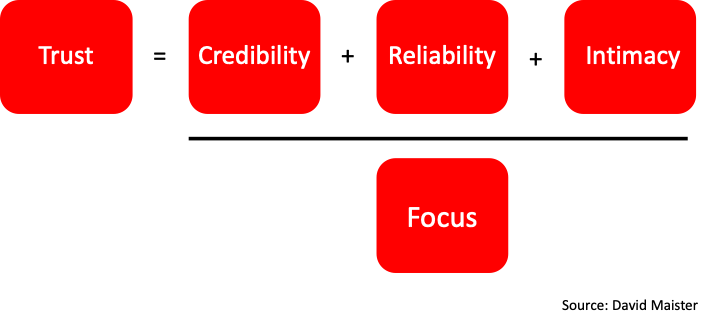How to build trust

We all know that trust is an important factor in any relationship that is to be sustainable. Trust builds commitment. It builds a bond. Trust is a two-way process. In this blog article we look at what’s necessary to make trust happen.
Let’s start with an incident that I can still vividly remember. In September 2007 I was watching the morning news on TV. It was scary, showing queues of people outside a bank called Northern Rock. These people were customers of this bank, each waiting to withdraw their deposits. In a world before social media, word had quickly spread that this bank had insufficient funds to cover each customers savings. Whether this was true or false, a run on the bank was on. One year later, following the collapse of Lehman Brothers, the financial crisis of 2008 was in full swing. Trust in the financial services industry was at an all time low.
Back in 2007 I was employed at Nationwide Building Society. As now, it was a well-respected financial institution. Nationwide was a brand built on trust. Colleagues told me that, at the same time as people were queuing outside Northern Rock to take money out, there were queues of people outside Nationwide Building Society waiting to put money in. This episode sent me to place where I wanted to learn more about trust, what makes this such an important commodity and how can businesses go on building trust – whether it be customer loyalty or employee retention. Managing the psychological contract at work is key.
My research led me to a book called The Trusted Advisor, co-written by the academic David Maister. This book contains lots of practical advice which is all very helpful. However, for me the centrepiece of this book is Maister’s formula for building trust. This blog article is my interpretation.

I see trust as something you feel. It’s hard to describe but easy to appreciate. Trust is a sensation. It’s personal.
So, for trust to exist between two parties then four elements need to be in place:
- Credibility
- Reliability
- Intimacy
- Focus
Let’s take a look at these one at a time:
Credibility
Having credibility can be about qualifications and experience. People may be impressed by your university degree, technical expertise or time spent in a particular role. However, credibility runs deeper than this. This is about your presence – not just how you look and appear but what you say and how you say it. Is there congruence between what you say and what you do? Having a ‘say-do’ gap will destroy trust rather than build it.
Reliability
Being reliable is really important when building trust. Reliability requires us to deliver on our promises. This can be about arriving on time. It could also be about delivering a project on time, on budget and to the right quality.
Although one or two slip-ups may be permissible, repeated failure begins to erode trust. Eventually the credit in one’s emotional bank account runs out.
Intimacy
In business, intimacy is very much about how well people (or organisations) know each other. Of course, professional boundaries need to be respected but getting to know each other is really important.
For example, learning about your customers needs will show interest as well as build necessary knowledge. Also, 1:1 meetings offer a fabulous opportunity to learn more about what makes a team member tick. Being remote and distant presents a real challenge – a real risk in today’s modern workplace where hybrid working is becoming more commonplace.
Focus
Aggregating credibility, reliability and intimacy may appear at first to be the perfect recipe to build trust. But another factor needs to be present. This factor is focus. This is shown as a divisor in the formula because if not given correctly it will degrade the other factors.
Focus has two elements:
- Focus on self.
- Focus on others.
These elements need to be in balance. For example, too much focus on oneself will lead to selfishness and not caring for others.
I can remember working for a manager who had lots of credibility, was mainly reliable and we had a certain level of intimacy. However, when it came to focus it was all about him.
Alternatively, too much focus on others can be destructive in building and sustaining trust. In my career I have also worked alongside someone who was so supportive and caring they became self-effacing to their own detriment. This can become damaging to their performance and, as a consequence, to our relationship.
To build and sustain trust, focus needs to be in balance.
Summary
Trust is said to arrive on foot and leave on horseback. Building trust takes time and effort.
I hope you enjoy using this formula and my interpretation to build trust within your working relationships.
Paul Beesley, senior consultant and director
Beyond Theory

